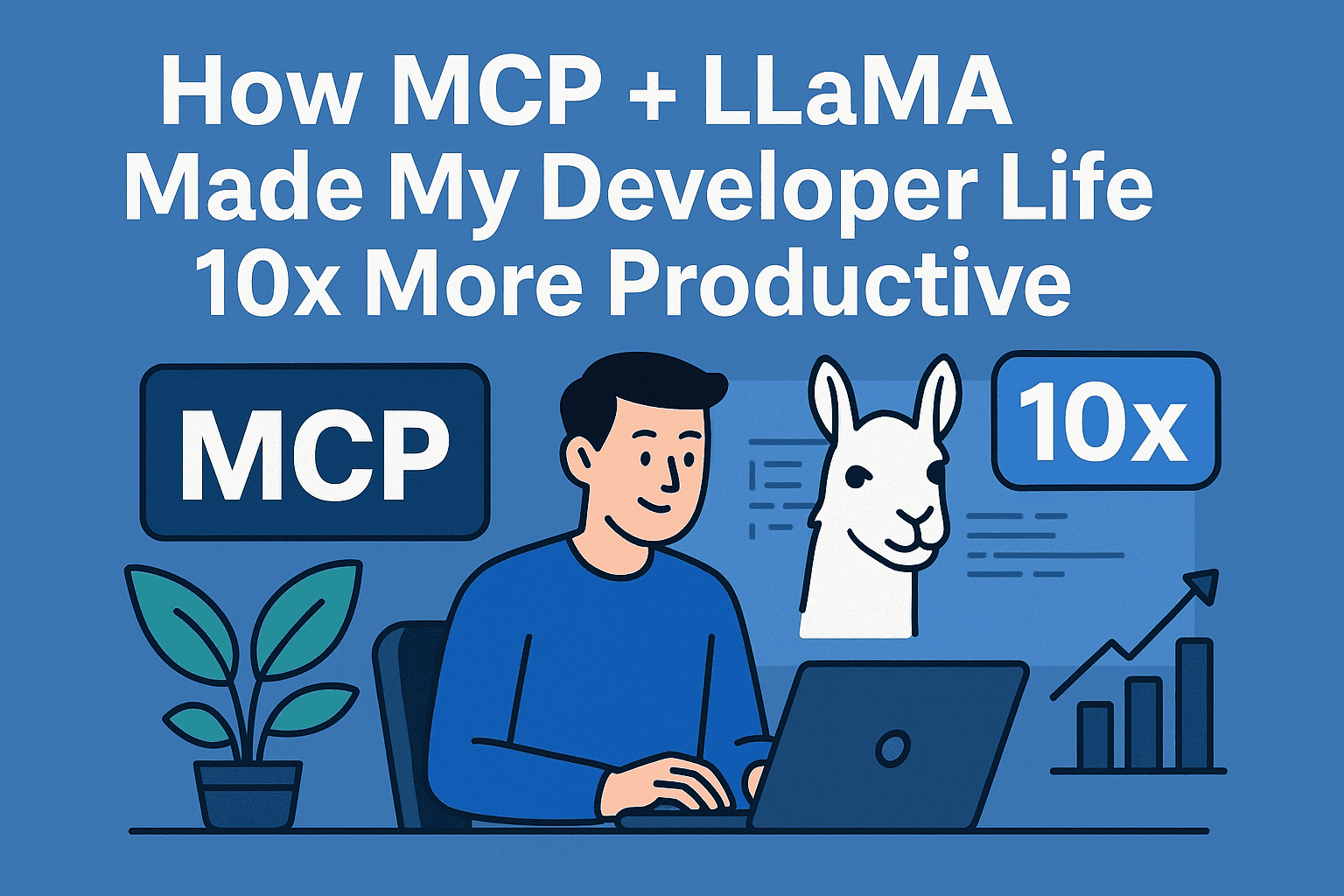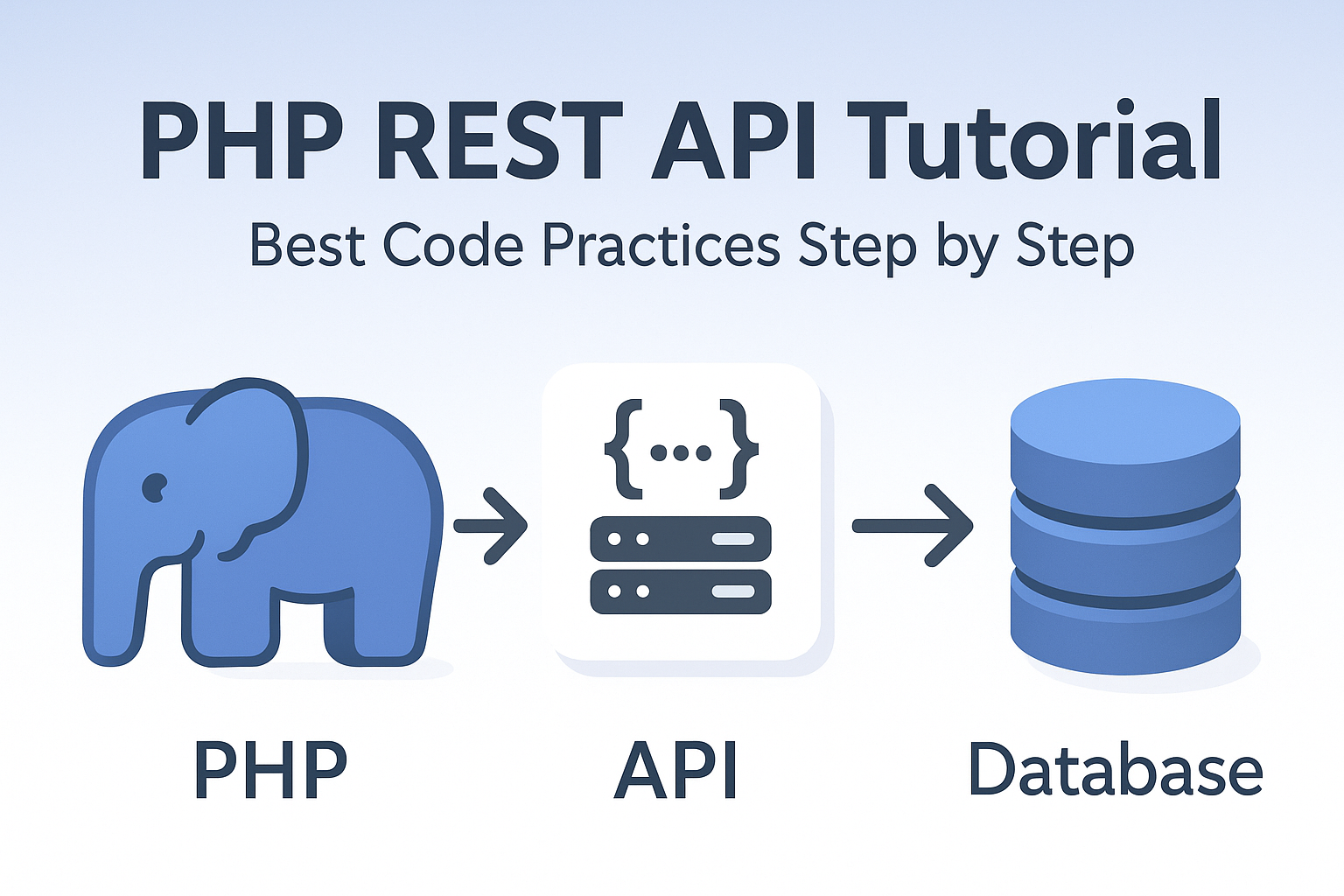How MCP + LLaMA Made My Developer Life 10x More Productive

Kritim Yantra
Aug 31, 2025

Introduction: From Chaos to Calm
I’ll be honest—my developer days used to look like this:
- 15 tabs open.
- Copy-pasting code snippets from old projects.
- Manually checking logs or writing quick scripts for tiny tasks.
- Getting distracted while “just” searching for one line of SQL.
Sound familiar? Yeah, it was messy.
Then I discovered MCP (Model Context Protocol) + LLaMA running locally, and trust me—it completely changed my workflow. No cloud costs, no privacy worries. Just my machine, my tools, and a local LLM that could talk to them through MCP.
Here are the 10 problems I solved, and how it made everything so much easier.
1. Searching Local Files Instantly 📂
Problem: I used to waste time digging through folders to find that one config file.
Solution: With MCP, I connected LLaMA to a file search tool. Now I just ask:
“Where’s the
.envfile for my finance project?”
and it gives me the exact path in seconds.
2. Summarizing Log Files 📝
Problem: Debugging used to mean scrolling endlessly through 5MB+ server logs.
Solution: LLaMA (via MCP) parses logs, highlights errors, and even suggests possible fixes. It’s like having a junior dev who never gets tired.
3. Generating SQL Queries on the Fly 💾
Problem: Writing complex SQL queries from scratch slowed me down.
Solution: I ask:
“Give me an SQL query to fetch top 5 customers by revenue last month.”
MCP connects LLaMA to my database tool, and it runs instantly. No more back-and-forth with docs.
4. Automating Git Commands 🧑💻
Problem: I sometimes forget exact git commands (stash, cherry-pick, rebase).
Solution: I say:
“Stage all changes, commit with message ‘fix bug in auth flow,’ and push.”
Boom—done safely via MCP.
5. Daily Standup Notes in Seconds 🗒️
Problem: Writing daily updates felt boring and repetitive.
Solution: LLaMA pulls my git commits + tasks and generates a neat 3-line standup update. My manager thinks I’m super organized (don’t tell them my secret 🤫).
6. Checking System Health ⚡
Problem: I often forgot to check disk space or memory until something broke.
Solution: LLaMA + MCP run simple system commands. Now I just ask:
“How’s my system health today?”
and it shows CPU, RAM, and disk usage in a friendly summary.
7. Organizing To-Do Lists ✅
Problem: My sticky notes and Notion pages were all over the place.
Solution: I connected MCP to a local JSON file where tasks live. LLaMA can add, update, and list tasks with natural language. Feels like having my own AI-powered task manager.
8. Writing and Running Quick Scripts ⚙️
Problem: For tiny automations (like renaming files or resizing images), I wasted time writing scripts.
Solution: I just say:
“Write me a Python script to rename all
.txtfiles to.mdin this folder and run it.”
Done. No manual coding required.
9. Summarizing Research PDFs 📚
Problem: Reading 40-page research PDFs drained my energy.
Solution: MCP connects LLaMA to my local PDF reader. Now I ask:
“Summarize this paper in 5 bullet points.”
and I actually understand research without drowning in jargon.
10. Automating Email Drafts 📧
Problem: Writing polite but repetitive client emails took too long.
Solution: I connected MCP to my local mail client. I just say:
“Draft an email to John thanking him for the meeting and attach the project report.”
The draft is ready in seconds—still customizable, but 80% done.
The Real Gamechanger 💡
It’s not just about “saving time.” It’s about:
- Less context switching (no jumping between 10 apps).
- Local + private (my data never leaves my machine).
- More mental energy for the real creative work.
Honestly, MCP + LLaMA feels like hiring a personal assistant that runs 24/7 on my laptop—except it doesn’t complain about overtime 😅.
Pro Tip ⚡
If you’re new, don’t try to automate everything on day one.
Pick one repetitive task you do daily (like file search or logs) and connect it via MCP. You’ll feel the productivity boost instantly.
Quick FAQ
Q1: Does this require high-end hardware?
Not necessarily. Even a decent GPU or CPU with 8–16GB RAM can run a smaller LLaMA model fine.
Q2: Isn’t it complicated to set up MCP?
Nope! It’s mostly JSON-based configurations. Once one tool is connected, you’ll get the hang of it.
Q3: Why not just use ChatGPT plugins?
Because this is local → faster, cheaper, private, and under your control.
Final Thoughts ✨
These 10 problems I solved are just the beginning. With MCP + LLaMA running locally, my laptop has basically turned into a supercharged personal AI workspace.
👉 My challenge to you: pick one problem from your workflow today and try solving it with MCP + LLaMA. You’ll never look back.
Now tell me—what’s the one repetitive task you wish your local LLM could handle for you? Drop it in the comments 👇
Comments
No comments yet. Be the first to comment!
Please log in to post a comment:
Sign in with GoogleRelated Posts

5 Power Prompts Every Web Developer Should Know in 2025

Kritim Yantra
